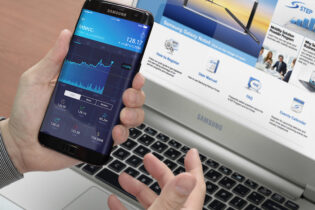Smartphones and the BYOD movement have transformed the American workplace over the past decade. They’ve also shaken up the traditional IT channel, with many solution providers still working to realign their business offerings to the needs of the mobile first enterprise.
While the revenue shift from traditional desktop computing infrastructure to smartphones, LTE-connected tablets and apps has been viewed as a threat by some, the IT channel has an exciting new opportunity that could be set to take off in 2017: unlocked devices.
Unlocked devices are the natural outcome of consumer and business demands for freedom and choice. With unlocked options in the market, businesses are now free from having to choose a single carrier at the time of purchase or locking into a fixed-term voice or data plan.
In the United States, the arrival of unlocked phones has been met with strong demand. Unlocked smartphone shipments in the U.S. grew 140 percent annually in 2015 to a then-record 14.6 million units, according to Strategy Analytics, and 2016 appears to be another record year in unit shipments.
The appeal to businesses is clear, and falls into two main categories:
- Businesses that want freedom of choice, and freedom from preloaded apps. They want to shop around for cellular connectivity, seeking out the best rates and coverage for a workforce dispersed around the country or internationally.
- Businesses that don’t need cellular connectivity at all and are just looking for a smart, Wi-Fi-connected handset for use on-premise with industry-specific applications.
However, the advantages of unlocked go beyond simple savings on connectivity costs, and it’s incumbent on the IT channel to convey the full story to their customers as they design and deploy integrated mobile first solutions.
Is it time for a mobile security assessment?
Learn how to develop a mobile strategy for your enterprise in this infographic. Download Now
Standardization and Simplification
For one thing, selecting a single, unlocked model for all mobile users allows IT to standardize, making management easier in terms of device configuration and logistics around inventory when an employee device needs to be replaced. This standardization can make a massive difference for a resource-strapped enterprise IT team managing thousands, or even tens of thousands, of devices.
Unlocked devices also come without preloaded carrier applications, providing a cleaner user interface (UI) out of the box. This might seem like a minor point, but it makes a real difference for enterprises seeking to customize and configure devices for specific use cases. Take, for example, the healthcare provider seeking to create a smart nurse communication device, with quick and easy access to just three or four core applications, and nothing else. Or consider the logistics firm wanting to arm delivery drivers with a custom-configured telematics device without distractions. For these and many other businesses, a clean and standardized device platform is key.
Lastly, an unlocked model offers savings in valuable device memory. Customers want that enterprise experience without additional applications taking up space on the device.
Unlocking the Market Opportunity
Previously, businesses could acquire unlocked versions of Samsung phones in the U.S. only by importing international models on the gray market. But doing so would fall outside of warranty, and, what’s more, pose a headache for IT administrators and service providers responsible for provisioning, integrating and managing devices. Now unlocked devices come with our full backing of proven quality, reliability and support.
So how does all this benefit the bottom line of IT solution providers? The decision to bring to market competitively priced unlocked versions of our Galaxy smartphone line was driven by a desire to not only provide freedom of choice to enterprise customers, but also to unlock opportunities for the IT channel.
Solution providers who are already consulting closely with enterprise customers on IT infrastructure, computing, networking, storage or virtualization now have the opportunity to position the full range of connected mobile endpoints, including smartphones. This diversity of channel expertise can only be beneficial for delivering value to customers in a maturing mobile market. And beyond the device, there are recurring revenue opportunities in the growing mobility services market.
For business leaders looking for freedom of choice and an easy purchasing path to unlocked mobile devices with a full U.S. warranty, the news couldn’t be better. But the biggest value-add that unlocked devices bring to the customer could in fact be something else: the ability to access the expertise of the IT channel and the myriad of innovative solution providers.
Interested in partnering with Samsung to grow your mobility practice? Register with our partner portal.








